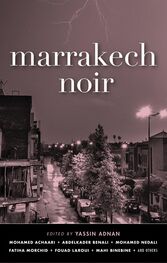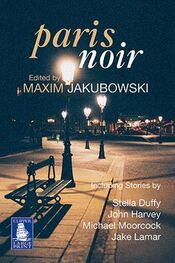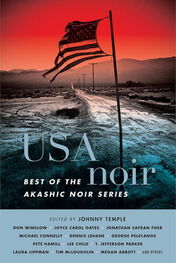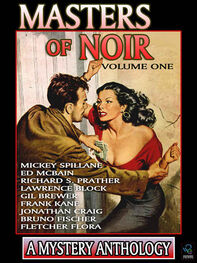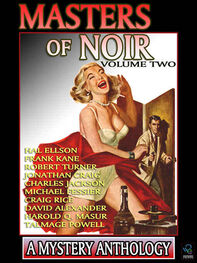Hamdouch ignored the owner’s startled greeting and planted himself directly in front of the painting to confirm his suspicions.
Yes, it was indeed Madani there, beside the pasha’s horse. You could distinguish his hideous mug, crudely painted though it was — on the verge of caricature. But then, nature seemed to have caricatured this man as the typical corrupt brute. The painter hadn’t had to embellish much.
The chief noted another detail that aggravated his migraine. While all of the figures’ gazes were fraught , there was an exception: Madani was not looking at the ex-pasha; he was staring out at the viewer of the painting. At that precise moment, Madani seemed to be staring into the face of the man who had succeeded him — Hamdouch. The ex-chief’s expression seemed to depict a kind of confusion, a mixture of fear, arrogant disdain, and... something else. But what else could it be?
And what was more, his right hand, which at first glance looked to be stroking the horse’s neck, was in fact placed on the left hand of Moulay Mimoun. The two men, hand in hand, seemed to be bracing themselves against the crowd’s anger.
Yes, anger ! That was the meaning behind the fraught gazes that Hamdouch had noticed before. That was it! The late Labatt was certainly no Rembrandt; he hadn’t always pulled off the desired effect, but it was clearly anger that he’d tried to convey on the faces in the painting, with the exception of the ex-pasha and the ex-chief.
Turning to the three tourists, Hamdouch arranged his face into a cheerful expression despite the migraine that was stabbing at his temples, and called out heartily: “Welcome to Marrakech!” He said it in French, rolling his r’ s.
Surprised, the men hesitated a few seconds — long enough to reassure themselves that this elegant man, with his graying hair and dashing mustache, wasn’t a beggar, a nuisance, or Clark Gable risen from the dead — before one of them returned his greeting: “Merci, monsieur...?”
“Hamdouch, at your service.” A pause. “I’m an art collector, and I’d like to ask your opinion.” The chief gestured at the painting in a sort of invitation. “What do you think of that?”
Clearly amused, the three men got to their feet and moved toward the painting. They had polished off two bottles of Volubilia and, feeling mischievous, they spontaneously decided, without even conferring about it, to play the experts. It’d be fun — they were on vacation, they’d have a story to tell when they got back to Paris. What followed was a smorgasbord of clichés uttered in the most affected tones.
“That light, gentlemen! That light... it’s like something out of Claude Gellée, dit le Lorrain!” one of the tourists exclaimed.
“See, the way that djellaba hangs! There, in the corner... lovely as the day is long,” another added.
“That horse, the energy, the movement... pure Delacroix!” the last man in the group added. “And what a noble-looking chevalier — is that your king?”
The chief, whose migraine was wearing down his patience, said, “Gentlemen, calm yourselves! If you’ll allow me, I’d like to ask you a specific question: what do you see in the eyes of all these men? Forget the horseman, it’s the others who interest me.”
The tourists went to work, no more messing around. They examined the faces frozen in time by the painter, and the verdict was unanimous.
“ Oh là là, they don’t look too happy...”
“No, no, they don’t look friendly at all...”
“I would even say they’re angry.”
Hamdouch, satisfied, pointed to the ex-chief. “And this one?”
The three men brought their faces up close, their noses nearly touching the surface of the canvas. This time, their opinions differed.
“A nasty fellow,” the first Frenchman decided.
“Arrogant,” said the second.
The third, a gangly redhead, took his time before answering. “Not quite, messieurs , not quite. I’ll tell you: he looks guilty . Like a delinquent caught in the act. Like a good-for-nothing who gives himself away just by the expression on his face.”
All four of them studied the nasty fellow’s face. There was no doubt about it. That was it: Madani looked guilty.
“Bravo, Christian!” the first tourist cheered for the redhead.
Delighted, Hamdouch thanked the Frenchmen for their observations.
“And now, are you going to try to sell us this daub?” one of the tourists asked boldly, grinning. “Not a bad technique! Bravo! We fell for it like a couple of chumps. How much?”
Hamdouch fixed the man with an icy stare. “I’m not an art dealer. And for that matter, this... this thing doesn’t belong to me. Au revoir, messieurs !”
The three men headed back to their seats, tickled with this little interlude. But just when the chief was about to leave, the redheaded Christian called out to him: “Ho there! There’s something not quite right with your daub... sorry, your painting.” The redhead stood up again, walked over, and pointed to the left-hand corner of the painting. “I’m not an expert, obviously, far from it! But I’ve never seen zellige tile on a wall. That’s zellige , right there, isn’t it?”
Hamdouch, already standing in the doorway, turned around and walked back. With his index finger, he touched the spot that Christian had pointed to. “You’re right,” he murmured, perplexed. “Yellow zellige , on the exterior side of a wall — it makes no sense.”
How had he not noticed this detail? Were his powers of observation in decline? He felt sheepish for a moment, but didn’t let it show.
Christian returned to the table where his friends gleefully teased him (“He’s got an eye, this one,” “Good work, Sherlock!”) while Hamdouch slipped away, lost in his own thoughts.
Back at his office, the chief left his door open and called for his computer: “Ba Mouss!”
His voice echoed through the station and the little man appeared almost instantly, his eyes more greenish than ever. This melancholy shade seemed to spread out over his entire face, so that he looked like a tiny Martian who’d been woken from his nap.
“I want you to tell me everything you know about the ex-pasha, Moulay Mimoun!” the chief barked. “Everything! Facts, fiction, rumors, gossip... everything!”
Ba Mouss sighed and began to drone on about the rich life of the pasha.
The chief let this flood of information flow past him, interrupting the human computer every now and then to ask for clarification. When Ba Mouss had finished, the chief was silent for a moment. Then he said: “This story about the murder of a rival. Can you tell me more about it?”
“It’s only a rumor, chief. And there’s no proof that there was any murder. A coppersmith, a certain Dadouchi, had asked for the hand of a very beautiful woman in the Kennaria District, and it was granted to him. The marriage preparations were coming along nicely, but alas! The pasha, Moulay Mimoun, had designs on this same woman. Then one day, the coppersmith disappeared. He went to see a customer and didn’t come back. In fact, he was never seen or heard from again. And so, after a few months, the pasha could add the lady to his stock of wives. But he rejected her a few months later, to the great anger and shame of her family.” Ba Mouss lowered his voice. “Word spread that it was he, the pasha, who’d made the coppersmith disappear.”
“ Cui bono? ” Hamdouch whispered to himself. He knew a few Latin expressions of great practical value that had circulated at the École de police, a legacy of the French.
“Pardon?”
“Nothing, nothing. Go on.”
Читать дальше
